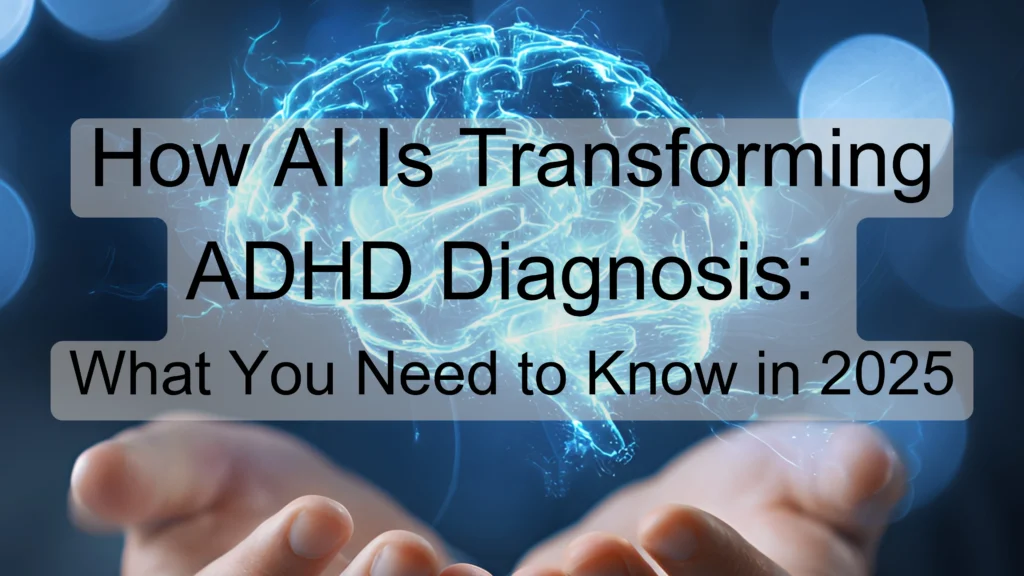How AI Is Transforming ADHD Diagnosis: What You Need to Know in 2025
For decades, ADHD diagnosis has been a long, often frustrating journey. Many people wait years for an assessment, only to find themselves facing inconsistent criteria, subjective observations, and even outright scepticism. But in 2025, a new frontier is opening: artificial intelligence (AI) is beginning to reshape how ADHD is understood, detected, and supported.
Why ADHD Diagnosis Has Been So Complex
Traditional ADHD assessments rely heavily on interviews, questionnaires, and behavioural observations. While these tools are valuable, they are also subjective. Clinicians bring their training, biases, and cultural lenses into the process, which can result in missed diagnoses, especially for women and minorities. As Dr. Russell Barkley once said, “ADHD is not a disorder of knowing what to do, but of doing what one knows.” Yet too often, individuals are judged by appearances rather than underlying neurological differences.
SIGN UP TO MAILING LIST
Enter Artificial Intelligence
Recent research shows that AI, particularly when paired with brain imaging and EEG (electroencephalogram) data, can help spot ADHD markers that human eyes might miss. Machine learning models are being trained to identify patterns of attention, hyperactivity, and executive function challenges across vast datasets.
In one study published in Frontiers in Human Neuroscience (2025), deep learning algorithms using raw EEG data achieved higher accuracy in distinguishing ADHD from non-ADHD cases than traditional clinician-only assessments. This suggests a future where diagnosis is faster, more consistent, and less dependent on geography or clinician availability.
Benefits of AI in ADHD Diagnosis
- Speed: Automated assessments could reduce the current multi-year waiting lists in countries like the UK.
- Consistency: AI tools apply the same standards every time, reducing bias.
- Accessibility: Digital platforms could extend support to people in remote or underserved areas.
The Ethical Questions
Of course, technology is not a magic wand. Concerns about privacy, data storage, and “explainability” remain. As the philosopher Shoshana Zuboff warns in The Age of Surveillance Capitalism, we must ensure that data-driven healthcare empowers patients rather than exploiting them.
SIGN UP TO MAILING LIST
What This Means for You
For now, AI is best viewed as an adjunct, not a replacement, for skilled clinicians. But the direction is clear: the future of ADHD diagnosis will likely blend human expertise with AI precision. If you are waiting for an assessment, keep an eye on developments—these tools may soon make the process more efficient and fair.
✨ The bottom line? AI is offering hope where waiting lists and stigma once reigned. It won’t cure ADHD, but it may finally help us see it more clearly.
Read Next: Taking Back Control: How Women Can Lead the Fight for Responsible AI

